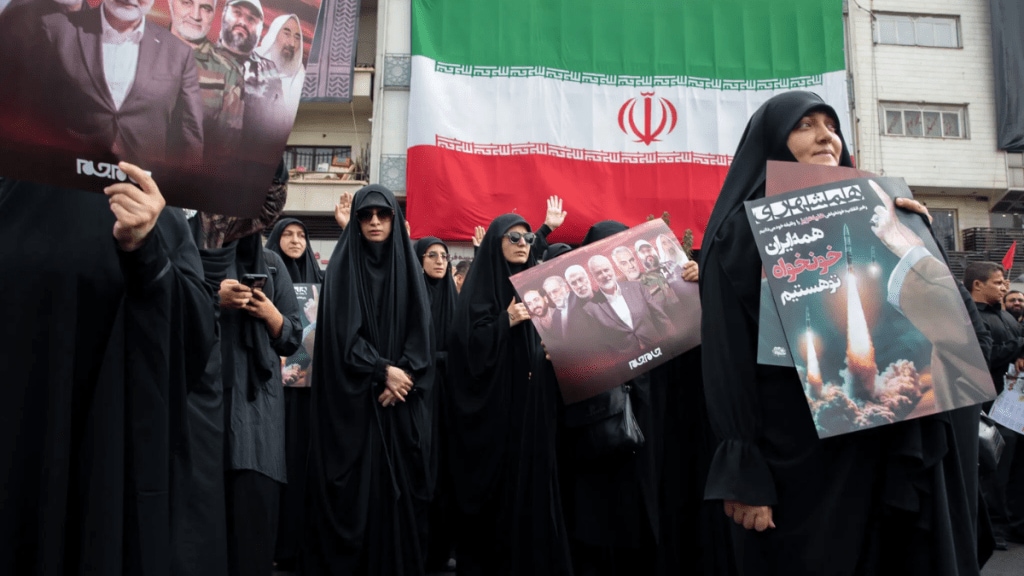As the year comes to a close, the Israel-Hamas conflict remains entrenched, with no resolution in sight. Despite multiple mediation efforts led by the United States, Qatar, and Egypt, a ceasefire between the warring factions continues to elude fruition. With both sides blaming each other for the collapse of peace talks, the international community is left dealing with a mounting humanitarian crisis, while civilian deaths pile up.
The Stalemate: Blame Game Between Israel and Hamas
In the latest round of failed talks, which took place in Doha on Dec 25, 2024 under the mediation of Qatar and Egypt, both Israel and Hamas accused each other of sabotaging potential peace agreements. According to Hamas, Israel introduced new demands during the negotiations, particularly concerning the release of hostages and the withdrawal of its military from Gaza. Hamas claims that these additional conditions were intended to stall the ceasefire, preventing an agreement that appeared close to being finalized.
Based on the reports in the public domain Hamas officials argue that significant progress had been made, but Israel’s imposition of fresh demands at the eleventh hour disrupted the talks. It has accused Israel of deliberately sabotaging the peace process. Israel, however, has firmly rejected these allegations. Prime Minister Benjamin Netanyahu’s office stated that it is not Israel, but rather Hamas, that has been creating obstacles in the talks. Israel claims that Hamas is backing out of previously agreed-upon terms and continues to obstruct a ceasefire.
War of Words
This war of words came to a head when Israel pulled its negotiators from Doha just days after they had been engaged in what were initially seen as productive discussions. Senior officials from Israel’s intelligence agency Mossad, the Shin Bet security agency, and the Israel Defence Forces (IDF) were part of the delegation, but the departure of these key figures signalled the failure of yet another attempt at peace.
Why the Talks Keep Failing
Despite numerous rounds of negotiations, peace talks between Israel and Hamas have consistently failed to produce results. Central to the breakdowns is the disagreement over Israel’s military presence in Gaza. Hamas demands a full Israeli withdrawal from Gaza, fearing that continued Israeli occupation allows Hamas to maintain control of the territory and its operations. However, Israel is reluctant to retreat, arguing that such a move would allow Hamas to regroup, potentially increasing the threat to Israeli security.
Another critical issue is the hostage crisis. While Hamas holds many hostages, including civilians and soldiers, Israel has repeatedly insisted on their release before agreeing to a ceasefire. The delicate nature of this issue—balancing the lives of hostages with the demands of peace—remains one of the major sticking points. The failure to find a mutually acceptable solution to these problems has ensured that the cycle of violence continues.
Despite extensive diplomatic efforts, including mediation by the United States and other international actors, the peace process remains deadlocked. The attempts have repeatedly stalled, unable to address the fundamental issues that fuel the conflict. While the international community continues to push for peace, the deadlock persists, and civilian casualties continue to mount.
The Human Toll: Rising Civilian Deaths
As 2024 approaches, the human cost of the conflict is staggering. Thousands of civilians—both Palestinians and Israelis—have lost their lives since the war began over a year ago. The lack of a ceasefire or peace agreement means that both sides continue to engage in violent exchanges, with each attack causing more devastation and loss of life.
The Gaza Strip, already devastated by years of conflict, faces a worsening humanitarian crisis. The ongoing blockade, military operations, and airstrikes have left countless civilians trapped in dangerous conditions, with limited access to food, medical supplies, and basic services. Meanwhile, Israeli civilians live under the constant threat of rocket attacks and incursions, contributing to the trauma and loss of life on both sides.
A Dim Prospect for Peace
As 2024 draws to a close, the failure to secure a ceasefire is a stark reminder of the deep divisions that continue to fuel the Israel-Hamas conflict. With both sides blaming each other for stalling negotiations, and no breakthrough in sight, the prospects for peace seem dim. The loss of life continues to rise, while diplomatic efforts remain bogged down by irreconcilable differences.

